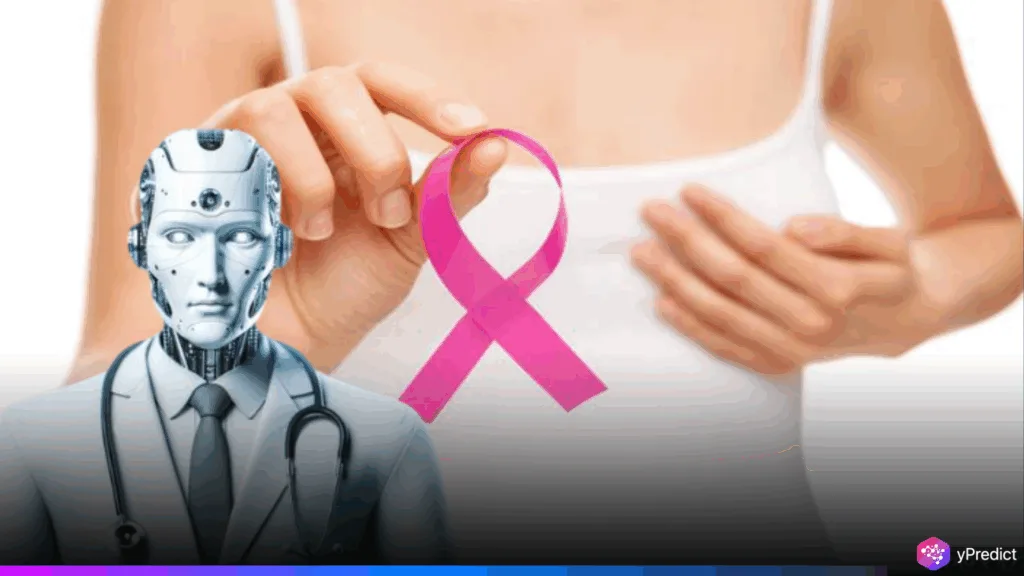
Artificial intelligence is improving how doctors detect HER2 protein levels in breast cancer patients. Researchers say this could expand targeted treatment access to more women. A study from A.C. Camargo Cancer Center in Brazil shows AI identifies low and ultra-low HER2 expressions. Currently, only 20% of breast cancer cases qualify for HER2-targeted therapy. The AI model, ComPath, could boost eligibility by up to 65%. HER2 helps tumors grow, and treatments targeting it are highly effective. The AI-enhanced method helps pathologists avoid mislabeling tumors, ensuring more patients receive appropriate therapy. The results will be presented at ASCO’s annual meeting.
ComPath AI Boosts Diagnostic Accuracy for HER2 Scoring
The study used ComPath AI to assist 105 pathologists across 10 countries in reviewing breast cancer biopsies. The pathologists conducted 1,940 readings, with AI used in about one-third. AI support improved HER2 detection accuracy by nearly 22%, raising correct scoring from 67% to nearly 89%. Without AI, nearly 30% of tumors with ultra-low HER2 were wrongly labeled HER2-negative. With AI, that dropped to just 4%. This is important because many of these tumors could respond to monoclonal antibodies or antibody-drug conjugates. These therapies target HER2 and deliver chemo directly to cancer cells.
If doctors miss HER2 expression, patients miss treatment options. Dr. Marina De Brot, lead researcher, said the findings could “open the door” to new therapies for many women previously excluded. Dr. Julian Hong from UCSF added that AI isn’t replacing doctors but making their work more accurate and efficient. The AI tool acts as a second set of expert eyes. It boosts precision in diagnosing breast cancer, especially in edge cases. This enhances care quality and supports faster treatment planning. Researchers now plan to implement AI into everyday clinical settings to study long-term effects on patient outcomes and treatment effectiveness.
Implications for Treatment and Global Cancer Care
HER2-targeted drugs have changed breast cancer treatment, but many women remain ineligible due to inaccurate HER2 readings. Traditional scoring often fails to detect low or ultra-low HER2 levels. That could soon change. The new AI-assisted method helps reduce human error and standardize diagnoses across regions. This study included pathologists from South America and Asia, highlighting AI’s global value. Many countries face shortages of experienced oncologists and pathologists. AI can help fill these gaps. It assists doctors by identifying subtle protein signals in biopsy images. This allows more patients to access advanced therapies like trastuzumab deruxtecan.
These antibody-drug conjugates are designed to deliver chemotherapy more precisely. AI could also speed up decision-making, reducing the time between diagnosis and treatment. Early treatment can be lifesaving. Accurate HER2 detection helps doctors choose therapies that best match a tumor’s profile. It also minimizes the risk of overtreatment or undertreatment. AI tools can improve patient care while lowering costs and reducing unnecessary testing. Researchers believe widespread use could transform cancer diagnostics, especially in underserved areas. As AI systems become more sophisticated, their role in oncology will likely expand. This development could mark a turning point in personalized medicine and cancer treatment access worldwide.
What’s Next for AI in Breast Cancer Diagnosis?
The research team now plans to integrate AI systems into standard clinical workflows to track their real-world impact. They hope AI will improve patient outcomes and support better treatment planning. Findings will be presented at ASCO’s annual meeting in Chicago. While results are promising, experts note that further validation is needed. Peer-reviewed publication is the next step. AI isn’t a replacement for doctors but a precision tool that enhances decisions. It could soon help bridge global diagnostic gaps and expand personalized treatment. For many women with breast cancer, this breakthrough offers new hope and faster access to life-saving therapy.






